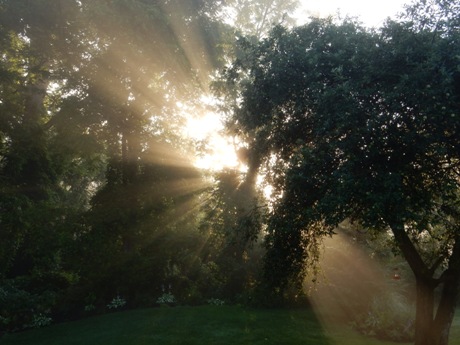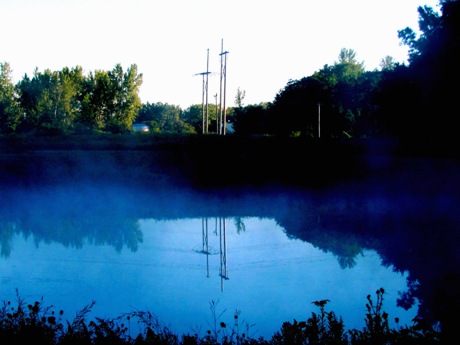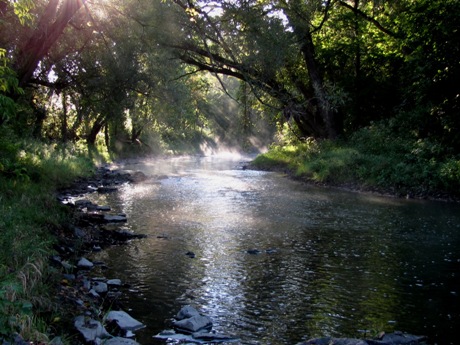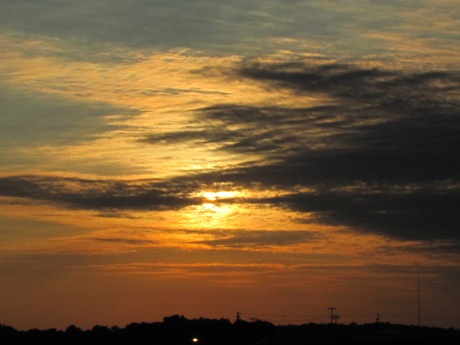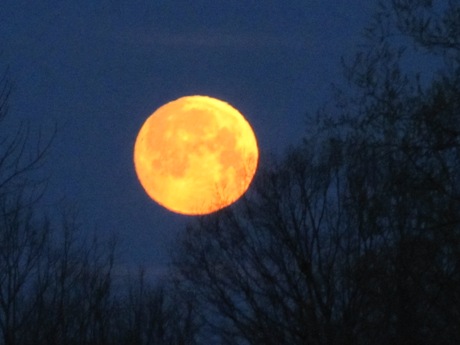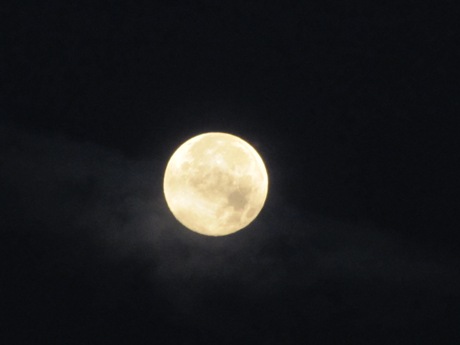Skywatchers take note: Friday the 13th full moon is tonight

(Moon pictured above from Sept. 12. Photo by Jim Burns.)
Look up to the sky tonight to see a rare Friday the 13th full moon.
Why is a full moon on Friday the 13th a big deal? It’s not unless you are among the 10 percent of Americans who say they are superstitious.
Sometime in the Middle Ages, Friday the 13th started being considered unlucky. The origin of this is traced to the 13 Apostles and the Last Supper being on Friday. Any 13 on a Friday was considered unlucky.
The full moon has been associated with superstition and mystical happenings in many cultures. The full moon has been accused of many things like, making people crazy and turning them into warewolves.
If you are of the 10 percent claiming to be superstitious, fear not the full moon on Friday the 13th. Technically the moon will not be completely full this month until after midnight, making the official moon full in the early hours of the 14th.
If you are in the 90 percent of Americans who do not consider themselves superstitious, check the moon out tonight anyway.
The moon rises at 6:40 p.m .and sets at 5:02 a.m.
Tonight's weather is expected to be a little breezy and mostly cloudy, but the moon will be big and bright when the clouds do part.

